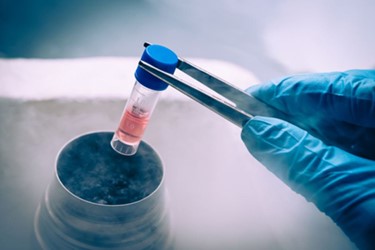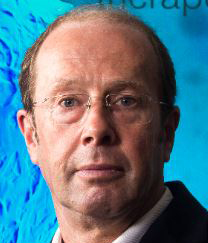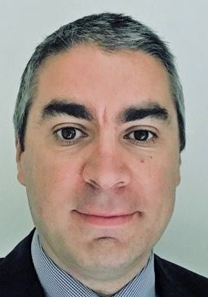Stem Cell Therapy Trial Offers Hope To Osteoarthritis Patients

By Ed Miseta, Chief Editor, Clinical Leader

Fraudulent companies promising false cures for patients are a black eye for the pharmaceutical industry. For that reason, many companies are applauding the FDA’s recent crackdown on stem cell clinics that tout treatments with no data to back up their claims. One of those companies is Cynata Therapeutics.
“We know there are clinics offering treatments that are unproven,” says Ross Macdonald, CEO and managing director at Cynata. “Whether those treatments involve stem cells or not, they should be a concern to all of us. The issue is one that relates to loopholes in various legislative provisions around medical and pharmaceutical products.”
In some cases, loopholes can be a good thing. For example, one loophole allows a physician to use a patient's own material body parts to repair and restore function elsewhere on their body, such as the use of a skin graft. If the material is handled in a sterile fashion, and the physician is adequately trained, the procedure will not come under any scrutiny and will not hamper commonplace medical procedures.

“That is why we support the FDA's crackdown,” says Macdonald. “Cynata, along with other biotech and pharmaceutical companies, are researching regenerative medicine and stem-cell-based therapeutics as another option for patients. We are developing a medicinal product the same way a typical pharmaceutical company would. We are going through the empirical pathway of proving safety and efficacy through well-designed and conducted clinical trials designed to obtain approval from regulatory agencies around the world.”
Autologous Versus Allogeneic Treatments
The problem with patients donating their own material, called an autologous treatment, is that the treatment options are limited. A patient with severe burns over a large percentage of their body, for example, may not have enough healthy skin to graft to other parts of their body. Healthy patients are also not able to donate their own material to those in need. An alternative approach, called allogeneic, is often referred to as an off-the-shelf approach. This involves creating a product that can be used in multiple patients. That is the approach being pursued by Cynata.
Cynata is producing products called mesenchymal stem cells (MSCs), which have huge therapeutic potential for numerous unmet medical needs. Current allogeneic stem cell therapies produce a small number of cells. That limits the number of different patients the product can be used in. Cynata’s Cymerus technology addresses many of the challenges and complexities of manufacturing those cells at commercial scale. In fact, from just one blood donation, Cynata can source all the cells it will ever need.
“We have solved that problem by developing a new manufacturing process for the product,” says Macdonald. “This process ensures a robust, reproducible, and consistent product that can be manufactured at commercial scale. Essentially, we can manufacture a lot of the exact same product to ensure that large-scale studies can be undertaken. Many patients can receive the active product while others receive a placebo. Statistical analysis at the conclusion of the study will determine if there was a beneficial effect in the patients who received the active product.”
Finding The Right Cell Donor
Cynata will soon be launching a stem cell trial of its Cymerus stem cells in 448 patients with osteoarthritis.
The therapy being put into those patients is a cell therapy product. Since it is a living drug, there had to be a human donor. Approximately eight years ago that original donor provided the starting material for the manufacturing process. Because an unlimited number of cells can be produced from that donation, Cynata will never have to go back to that donor and will never again have to collect their cells.
“We were able to manufacture our starting material from that single donor, called an induced pluripotent stem cell, or iPSC,” states Macdonald. “Since we are dealing with a living cell, this is a very complex product.”
The original donation was a bit like giving blood, but the screening and consent process was more complicated. The company collecting the sample must ensure the donors for this type of product are healthy and do not have a history of certain infectious or contagious diseases. Macdonald notes the process is not necessarily designed to select the best of the best, but rather provides confidence that the donor has a clean-living history.
An Interesting Manufacturing Process
The Phase 2 osteoarthritis trial Cynata is about to embark on will determine the safety and effectiveness of the product. The company has been partnering with an academic group led by the University of Sydney, which has conducted a lot of research in osteoarthritis and was instrumental in the study design.

All 448 patients being recruited for the Phase 2 trial will be in Australia. They will be recruited from two centers, one in Sydney and one in Hobart, which is on Tasmania, an island off the coast of Australia.
The material needed for the trial will be produced in the U.S. using technology that originated at the University of Wisconsin-Madison, a world leader in stem cell research. A group at the University pioneered the pluripotent stem cell technology. Once the technology was commercialized, the manufacturing was outsourced to Waisman Biomanufacturing, a CMO in Wisconsin with GMP capabilities. Kelly notes the product is cryopreserved and very stable when frozen at ultra-low temperatures, enabling it to be shipped worldwide.
“We have already conducted a clinical trial in a very different indication,” says Kelly. “The treatment comes in a small bag that is like a blood bag but holds a smaller volume. When warmed in a water bath or automated device it is administered to a patient via standard syringe or infusion. For osteoarthritis patients it will be administered via injection to the knee joint.
Macdonald notes there are currently no effective disease-modifying treatments for osteoarthritis. As a result, most patients tend to control their condition by taking pain killers. Since only the pain is being managed, those patients will continue to see a continuous deterioration in their condition over time. For that reason, patients tend to be highly motivated to try and find a treatment that will help the underlying condition.
A Subjective Endpoint
If Cynata’s treatment is effective at treating osteoarthritis, patients should experience less pain. If you want to know if a treatment is effective at lowering a patient’s blood pressure, the end point is easy to measure. Use a sphygmomanometer to record the reading both before and after administering the treatment. With pain, the process is a bit more difficult.
“Pain is certainly more of a subjective endpoint,” says Kelly. “Still, there are validated tools we can use to assess pain in patient populations. Pain can be measured using a numerical rating scale. While that can have its limitations, due to it being the opinion of the patient, when you administer the test over a very large population, the results become more reliable.”
Cynata also uses quality of life measurements with patients. Patients are not simply asked about pain levels. They are asked about tasks that they are and are not able to perform, and how much difficulty is involved with doing them. By improving the patient’s pain level, researchers expect them to be able to perform more tasks and have an improved quality of life. The data will be collected via an interview-based assessment with staff at the clinics.
In creating the trial protocol, Cynata employed a group with extensive experience in using these instruments. The company also sought the advice of statisticians. If the treatment impacts patients, Macdonald and Kelly are confident the benefits will surface in the collected data. “We will recruit a large number of patients for the trial, but we also need to generate data that will allow us to form very robust conclusions about whether there is, or is not, an effect,” says Kelly.
Although Macdonald and Kelly have a lot of confidence in their treatment, they note the manufacturing challenges will continue to be a focus for the company. “Our challenge will be the same as it is for most companies pursuing advanced therapies,” says Kelly. “With any cell therapy or regenerative medicine, the big challenges are cost, consistency, and reliability. As we move forward with these treatments, we have to be able to show that these products can be manufactured economically and in a consistent fashion so the benefit can be reproduced.”
“That’s an important point,” adds Macdonald. “Safety and efficacy are cardinal requirements, but we have to be able to manufacture the product, at scale, in an economic manner. That is where our technology gives us an advantage. We have indications that our product is safe and effective, and this trial will prove that with a great deal of confidence. If Cymerus can solve the manufacturing issues that exist, we will be able to provide needed relief to these patients.”
